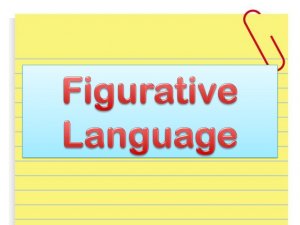The Institute of Banking and Financial Services of Uganda conducted an educative webinar on the contemporary topic of the use of Big Data, Business Intelligence, Artificial Intelligence in the Financial Services Sector.
The event took place on 20th October 2020 from 12 pm to 2 pm. As one of the panellists, I shared insights on how to harness data as a strategic resource. I had prepared a presentation explaining the basics of data analysis and application to the banking sector, which I did not get an opportunity to present. To download the PPT, here. Below is an extract of the questions posed to me and my responses.
Moderator (Mark Mwanje): For a Bank or an organization to make good use and meaning of its data assets, there is a need for investment in the right tools and systems. What is the role of data scientists and other data experts in a bank, if we can use technology to get the best out of the data?
Panelist (Mustapha B Mugisa): Banks like telecoms, are large producers of data. We are talking about petabytes and zettabytes of data. But all of it is useless unless it is used to inform strategic moves. Data Scientists use mathematical, statistical, programming, and visualization tools to transform this raw data into useful information. Winning banks must pay special attention to their data as a strategic asset. Over 80% of the data within banks and telecoms or any other organization is unstructured.
Winners use a lot of the 80% unstructured data by converting it into databases for effective analysis to drive strategic and tactical insights to win with the customer and prospects. You need history to predict the future. Whoever has a lot of data has an advantage. That is why data analysis and business intelligence operations center is a must-have as a strategic capability.
Data Science aims to find ways to identify this unstructured data, classify it in a database, and use it best to win with the customer and other stakeholders. When you understand data and the information requirements of different users, you become a game-changer. Technology like IA is still a long way to handle unstructured data the way a great data scientist can.
Mark: What operational and regulatory concerns must we consider in implementing a successful data strategy as well as artificial intelligence within the financial sector in Uganda? How do you set up data analytics capabilities?
Mustapha: First, the operational concerns – do we create capabilities internally, we outsource, or we run a hybrid approach? What are the costs involved? Which approach is sustainable and gives us a competitive advantage from our data?
Do we create internal data science innovations hub taking advantage of custom-built tools as well as using open source or we buy bespoke or off the shelf software? Which one delivers greater solutions?
Do we build a data strategy as part of the IT strategy, which is part of the corporate strategy or we do freewheeling opportunisms – we go with the flow. You need to understand your current state through assessment. What is your corporate strategy and how do you plan to optimize data to win? What is your structure? Who needs which data and for what? Then you can decide the approach to you to develop data capabilities.
Do you develop it internally? Do you outsource the capability, or do you use a hybrid approach? Our experience shows that it takes about 3-5 years to develop data analytics and AI capabilities internally because it is a cultural issue. People must first be educated to appreciate the potential opportunities when data is optimized to inform strategic moves. Since you need to start using data now, five years is a lot of time to wait. That is why a hybrid approach always delivers results. As people learn, an expert in providing real-time solutions proactively. This learning on the job is the best. With time, your internal skills will have been developed and the required capabilities acquired which gives you a good long-term game.
Our experience shows that to win start small. Have a hybrid model for short- and long-term success. And be pragmatic by investing for the long term. Before you spend a fortune buying off the shelf tools, start with self-study using demo versions and open source tools like MS Excel (VBA), Python, SQL, and then mature to platforms like Hadoop, and the other tools in the big data ecosystem of Hadoop. That way, you win and save lots of resources.
From a regulatory concern, the Data Privacy and Protection Act, 2019, section 25 provides for a right to prevent the processing of personal data if it is likely to cause unwarranted substantial damage to the data subject. The Constitution of the Republic of Uganda too, provides for privacy. Just like the Financial Institutions Act 2014, the Laws of Uganda provide for confidentiality of customer records held in banks. You must invest in data governance, data management, and data strategy as part of the digital transformation strategy to win as you avoid any possible legal issues that could arise on integrity, trust, and privacy issues.
You don’t want your tools to expose private data which is classified and privileged.
Mark: Big Data is a broad subject, so learning it all requires knowledge of several subjects such as programming language that relates to data analysis (R, Python, SAS, SQL), a good understanding of Math & Statistics, experiences on how to scrape a webpage, Excel, etc. Where do people go for training if they want to skill up and become experts like you in this country?
Mustapha: Thanks, Mark.
Nothing beats passion when it comes to technical careers like data science and programming. Globally, Coursera, Udemy, YouTube and LinkedIn learning are great places to start.
But there are lots of resources on the subject and you could easily get lost.
That is why you need a mentor or a starting point.
You can visit the Uganda Institute of Banking and Financial Services. They work with the best experts. The Institute of Forensics and ICT Security, where I am a director, has signed an MOU with the Uganda Institute of Banking. We have the National Council for Higher Education approved courses like Business Intelligence and Data Analytics course. That is a great place to start.
You can be guided to take your data science career to the next level. Once you know the basics, you can then get going to a wonderful career in modern times. Much as you are encouraged to study data analytics regardless of your profession, you need some foundation specifically to do advanced modeling.
Remember you need mathematics, statistics, computing specifically coding and visualization skills to be of a special kind. Otherwise, you must be very passionate, curious, and motivated to study these from scratch and win. As they say, where there is a will, there is away.
Copyright Mustapha B Mugisa, 2020. All rights reserved.



